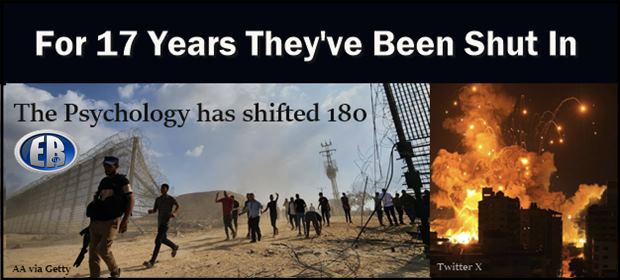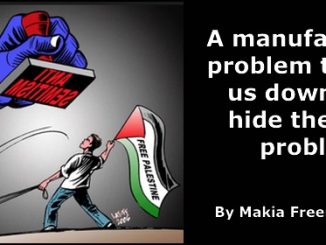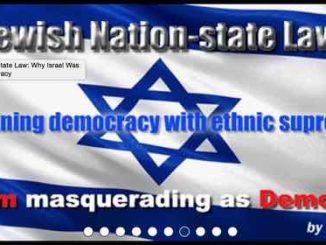
ER Editor: It’s linked to below, but we do recommend checking out this Amnesty report on the Great March of Return published in 2018 —
WHY ARE PALESTINIANS DEMONSTRATING?
A taste:
This year has marked 11 years since Israel imposed a land, air and sea blockade on the Gaza Strip. The United Nations and the International Committee of the Red Cross (ICRC), among others, have characterized Israel’s closure policy as “collective punishment” and called for Israel to lift its closure. Under Israel’s illegal blockade, movement of people and goods is severely restricted and the majority of exports and imports of raw materials have been banned. Travel through the Erez Crossing, Gaza’s passenger crossing to Israel, the West Bank, and the outside world, is limited to what the Israeli military calls “exceptional humanitarian cases”, meaning mainly those with significant health issues and their companions, and prominent businesspeople. Meanwhile, since 2013, Egypt has imposed tight restrictions on the Rafah crossing, keeping it closed most of this time.
Over the last 11 years, civilians in the Gaza Strip, 70% of whom are registered refugees from areas that now constitute Israel, have suffered the devastating consequences of Israel’s illegal blockade in addition to three wars that have also taken a heavy toll on essential infrastructure and further debilitated Gaza’s health system and economy. As a result, Gaza’s economy has sharply declined, leaving its population almost entirely dependent on international aid. Gaza now has one of the highest unemployment rates in the world at 44%.
Middle East Monitor (MEMO) has put some links to other reports in their text. We’re leaving those links in.
Notice that journalist and author Ramzy Baroud talks about the symbolism of the TIMING of this attack on Israeli territory. We offer another one: 17. Gaza has been hermetically sealed off for 17 years. Certain readers will understand this.
We believe this entire Israel-Hamas episode, which is still ongoing, has changed irrevocably not only the psychological relationship between Israel and Palestinians, as Baroud argues below, but also that of the global audience and Israeli-Palestine relations, putting it in the cold light of day, on a reality-based level. And it’s about time.
********

••••
The Liberty Beacon Project is now expanding at a near exponential rate, and for this we are grateful and excited! But we must also be practical. For 7 years we have not asked for any donations, and have built this project with our own funds as we grew. We are now experiencing ever increasing growing pains due to the large number of websites and projects we represent. So we have just installed donation buttons on our websites and ask that you consider this when you visit them. Nothing is too small. We thank you for all your support and your considerations … (TLB)
••••
Comment Policy: As a privately owned web site, we reserve the right to remove comments that contain spam, advertising, vulgarity, threats of violence, racism, or personal/abusive attacks on other users. This also applies to trolling, the use of more than one alias, or just intentional mischief. Enforcement of this policy is at the discretion of this websites administrators. Repeat offenders may be blocked or permanently banned without prior warning.
••••
Disclaimer: TLB websites contain copyrighted material the use of which has not always been specifically authorized by the copyright owner. We are making such material available to our readers under the provisions of “fair use” in an effort to advance a better understanding of political, health, economic and social issues. The material on this site is distributed without profit to those who have expressed a prior interest in receiving it for research and educational purposes. If you wish to use copyrighted material for purposes other than “fair use” you must request permission from the copyright owner.
••••
Disclaimer: The information and opinions shared are for informational purposes only including, but not limited to, text, graphics, images and other material are not intended as medical advice or instruction. Nothing mentioned is intended to be a substitute for professional medical advice, diagnosis or treatment.


![Israeli military vehicle is seized by the Palestinians as the clashes between Palestinian groups and Israeli forces continue in Gaza City, Gaza on October 7, 2023. [Mustafa Hassona - Anadolu Agency]](https://i0.wp.com/www.middleeastmonitor.com/wp-content/uploads/2023/10/AA-20231007-32332779-32332769-PALESTINIAN_GROUPS_AND_ISRAELI_FORCES_CLASH_IN_GAZA.jpg?fit=1200%2C800&ssl=1)



Leave a Reply